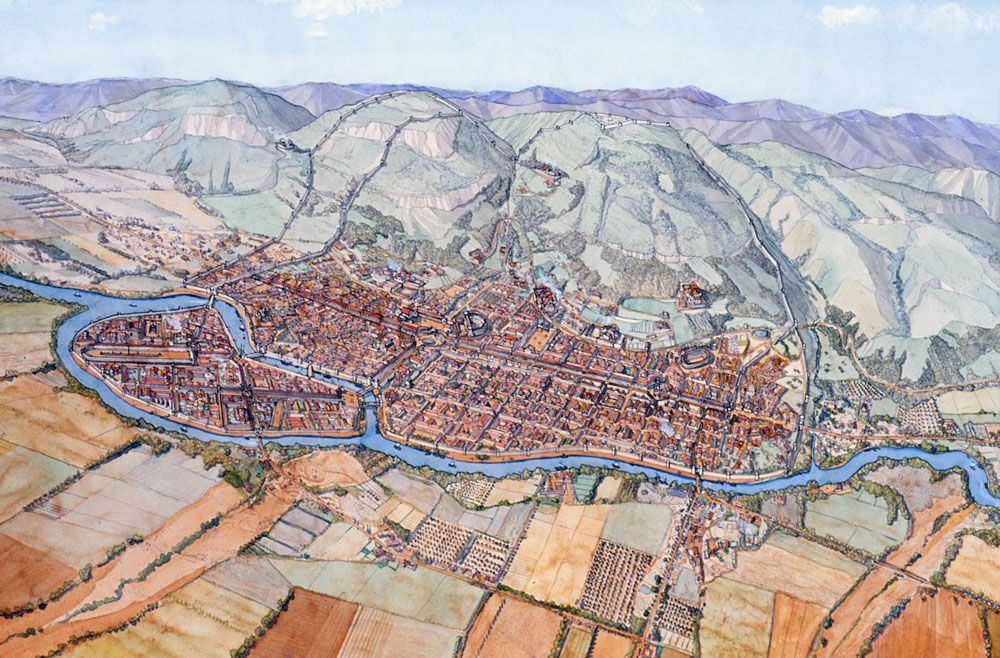
Antioch founded
Antakya, Küçükdalyan, Antakya/After the Battle of Ipsus in 301 BCE, Seleucus I Nicator won the territory of Syria, and he proceeded to found four "sister cities" in northwestern Syria, one of which was Antioch, a city named in honor of his father Antiochus; according to the Suda, it might be named after his son Antiochus.
The city's location offered geographical, military, and economic benefits to its occupants; Antioch was heavily involved in the spice trade and lay within easy reach of the Silk Road and the Royal Road. During the late Hellenistic period and Early Roman period, Antioch's population reached its peak of over 500,000 inhabitants (estimates generally are 200,000–250,000), making the city the third largest in the Empire after Rome and Alexandria. The city was the capital of the Seleucid Empire until 63 BCE, when the Romans took control, making it the seat of the governor of the province of Syria. From the early fourth century, the city was the seat of the Count of the Orient, head of the regional administration of sixteen provinces. It was also the main center of Hellenistic Judaism at the end of the Second Temple period. Antioch was one of the most important cities in the eastern Mediterranean half of the Roman Empire. It covered almost 1,100 acres (4.5 km2) within the walls of which one quarter was mountain.
Antioch was called "the cradle of Christianity" as a result of its longevity and the pivotal role that it played in the emergence of both Hellenistic Judaism and early Christianity. The Christian New Testament asserts that the name "Christian" first emerged in Antioch. It was one of the four cities of Seleucis of Syria, and its residents were known as Antiochenes. The city may have had up to 250,000 people during Augustan times, but it declined to relative insignificance during the Middle Ages because of warfare, repeated earthquakes, and a change in trade routes, which no longer passed through Antioch from the far east following the Mongol invasions and conquests.
